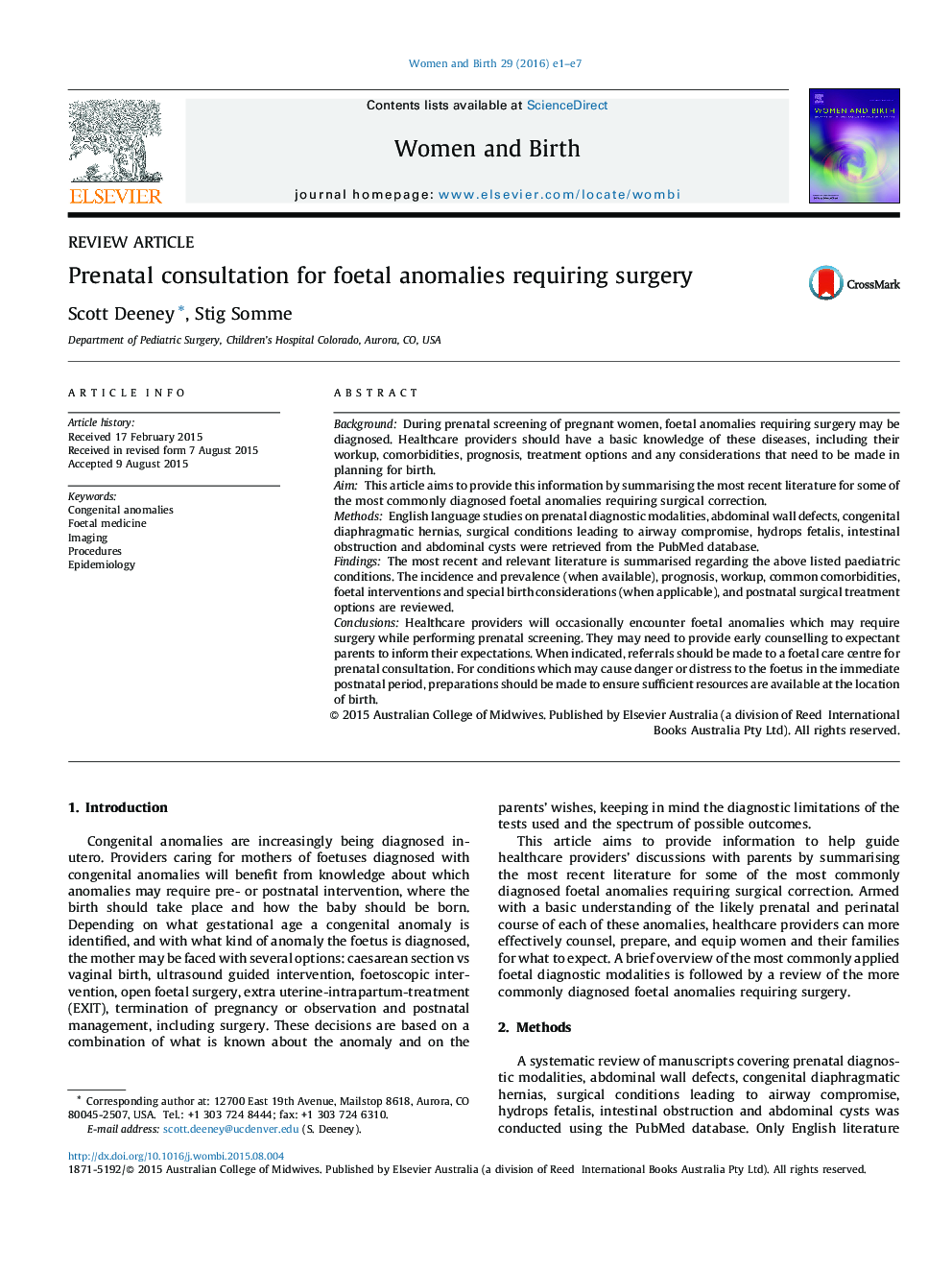| Article ID | Journal | Published Year | Pages | File Type |
|---|---|---|---|---|
| 2636446 | Women and Birth | 2016 | 7 Pages |
BackgroundDuring prenatal screening of pregnant women, foetal anomalies requiring surgery may be diagnosed. Healthcare providers should have a basic knowledge of these diseases, including their workup, comorbidities, prognosis, treatment options and any considerations that need to be made in planning for birth.AimThis article aims to provide this information by summarising the most recent literature for some of the most commonly diagnosed foetal anomalies requiring surgical correction.MethodsEnglish language studies on prenatal diagnostic modalities, abdominal wall defects, congenital diaphragmatic hernias, surgical conditions leading to airway compromise, hydrops fetalis, intestinal obstruction and abdominal cysts were retrieved from the PubMed database.FindingsThe most recent and relevant literature is summarised regarding the above listed paediatric conditions. The incidence and prevalence (when available), prognosis, workup, common comorbidities, foetal interventions and special birth considerations (when applicable), and postnatal surgical treatment options are reviewed.ConclusionsHealthcare providers will occasionally encounter foetal anomalies which may require surgery while performing prenatal screening. They may need to provide early counselling to expectant parents to inform their expectations. When indicated, referrals should be made to a foetal care centre for prenatal consultation. For conditions which may cause danger or distress to the foetus in the immediate postnatal period, preparations should be made to ensure sufficient resources are available at the location of birth.
